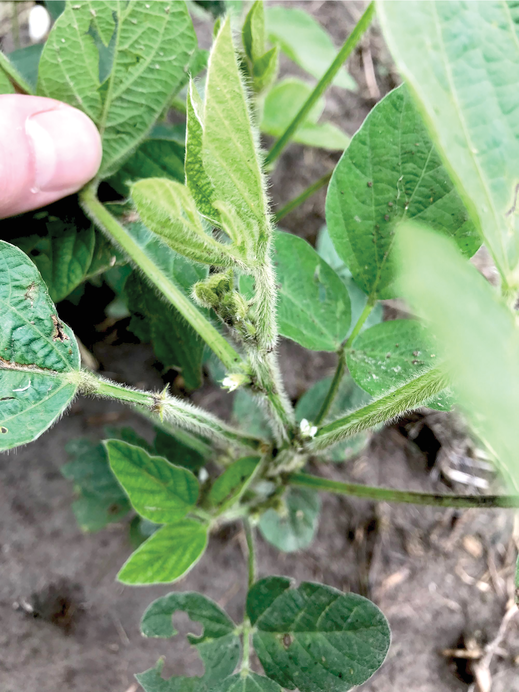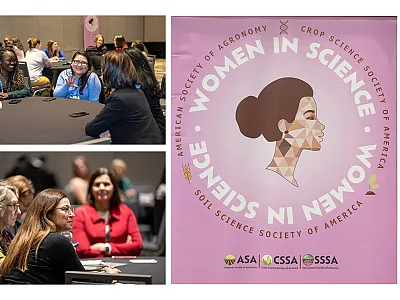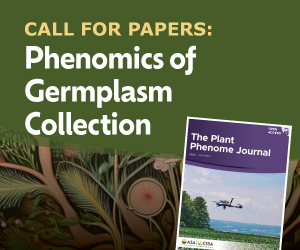Biodegradable Nanoparticles Safe for Soybean

Nanoparticles are currently used in agriculture as fertilizers, pesticides, and chemical carriers. However, some of these (e.g., metal nanoparticles) come with negative risks to the environment. As a result, scientists have developed biodegradable biopolymer nanoparticles. But are these safe for plants?
To explore this question, a research team evaluated two biodegradable biopolymer nanoparticles—one made from corn protein (zein) and the other from lignin—on soybean plants to test for negative effects. Both zein and lignin nanoparticles were used as a seed treatment while only zein nanoparticles were tested as a spray to measure flower abortion (as a means of evaluating if zein nanoparticles stress soybean to reduce yield).
In a two‐year field study, seed treatment tests measured stand counts, plant height, yield, and hundred‐seed weight. Researchers also assessed how plants responded to herbivorous insects feeding on their leaves and pods. Foliar spray trials measured the number of soybean flowers and pods.
The researchers found that the tested nanoparticles did not negatively affect soybean growth or yield. In addition, herbivore feeding trials showed no increase in herbivore susceptibility. This suggests that zein and lignin nanoparticles are suitable for agricultural use.
Adapted from Bonser, C.A.R., Borgatta, J., White, J.C., Astete, C.E., Sabliov, C.M., & Davis, J.A. (2023). Impact of zein and lignin‐PLGA biopolymer nanoparticles used as pesticide nanocarriers on soybean growth and yield under field conditions. Agrosystems, Geosciences & Environment, 6, e20350. https://doi.org/10.1002/agg2.20350
Text © . The authors. CC BY-NC-ND 4.0. Except where otherwise noted, images are subject to copyright. Any reuse without express permission from the copyright owner is prohibited.







